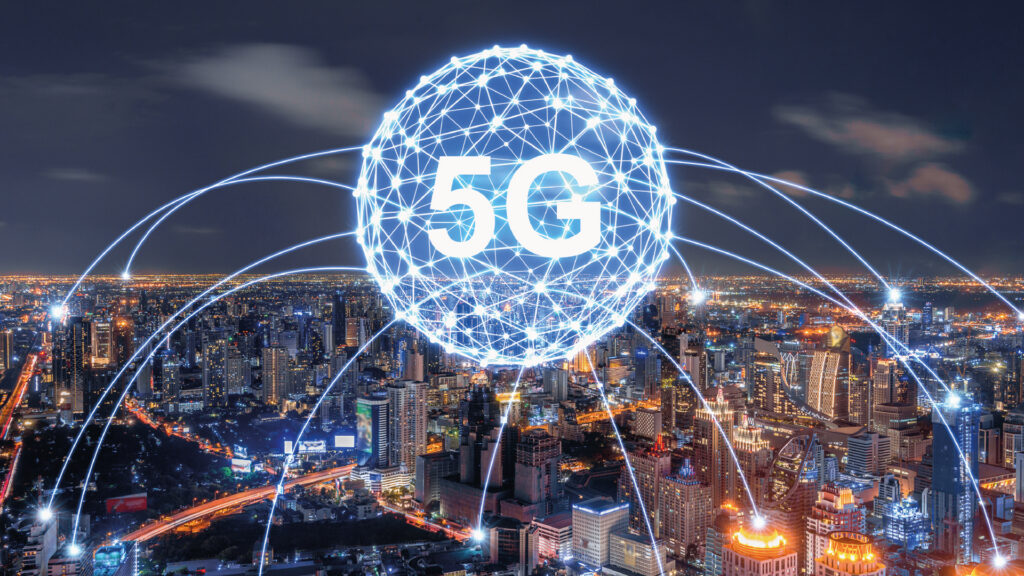The Rise of 5G Technology: What it Means for Consumers and Businesses

In the ever-evolving landscape of technology, the advent of 5G has emerged as a game-changer. The fifth generation of wireless technology, known as 5G, promises faster speeds, lower latency, and a plethora of new opportunities. This article delves into the rise of 5G technology and explores its profound implications for both consumers and businesses.
Understanding 5G Technology
1. Speed and Bandwidth Advancements
At its core, 5G represents a significant leap in data transfer speeds and bandwidth. With speeds potentially reaching up to 20 gigabits per second, 5G is poised to deliver an unparalleled user experience. This means faster download and upload speeds, smoother streaming, and improved overall connectivity.
2. Low Latency for Real-Time Applications
One of the key advancements of 5G is its remarkably low latency. Latency, or the time it takes for data to travel from the source to the destination, is significantly reduced with 5G. This is particularly crucial for real-time applications, such as augmented reality (AR), virtual reality (VR), and autonomous vehicles, where split-second decisions are paramount.
Implications for Consumers
1. Enhanced Mobile Experiences
Consumers can expect a transformative shift in their mobile experiences. Streaming high-definition content on the go, lag-free video calls, and seamless app experiences are just the tip of the iceberg. 5G’s speed and reliability will redefine how consumers interact with their devices, unlocking new possibilities for entertainment, communication, and productivity.
2. Emergence of AR and VR Applications
The low latency and high bandwidth of 5G pave the way for widespread adoption of augmented reality and virtual reality applications. From immersive gaming experiences to virtual travel and interactive educational content, consumers can anticipate a surge in innovative AR and VR applications that harness the full potential of 5G technology.
Impact on Businesses
1. Revolutionizing Industries with IoT
The Internet of Things (IoT) is set to undergo a revolution with the implementation of 5G. The increased connectivity and low latency empower businesses to deploy and manage a vast network of IoT devices seamlessly. This has far-reaching implications across industries, from smart cities and healthcare to manufacturing and logistics.
2. Empowering Remote Work and Connectivity
The COVID-19 pandemic highlighted the importance of robust connectivity for remote work. 5G facilitates high-speed, reliable connections, enabling employees to work seamlessly from various locations. Businesses can leverage 5G to enhance collaboration, streamline operations, and support the growing trend of remote and flexible work arrangements.
Challenges and Considerations
1. Infrastructure Requirements
The widespread implementation of 5G requires substantial infrastructure upgrades. The deployment of new towers and small cells, as well as the integration of 5G-compatible devices, represents a significant investment for both telecommunications companies and businesses looking to capitalize on 5G capabilities.
2. Security Concerns
As with any technological advancement, the rise of 5G brings forth security considerations. With an increasing number of connected devices, the potential for cyber threats expands. Businesses must prioritize robust cybersecurity measures to safeguard sensitive data and ensure the integrity of their networks.
The Future of 5G
1. Expanding Coverage and Accessibility
As 5G continues to mature, efforts are underway to expand its coverage globally. The goal is to make high-speed connectivity accessible to a broader population, bridging the digital divide and unlocking opportunities for socio-economic development.
2. Innovation and Entrepreneurship
The rise of 5G is a catalyst for innovation and entrepreneurship. Startups and established businesses alike have the opportunity to pioneer new applications, services, and business models that leverage the capabilities of 5G. From smart cities to revolutionary healthcare solutions, the possibilities are vast.
Conclusion
The rise of 5G technology marks a pivotal moment in the evolution of connectivity. With its promise of unparalleled speed, low latency, and transformative capabilities, 5G is set to redefine how consumers interact with technology and how businesses operate. While challenges such as infrastructure requirements and security concerns must be addressed, the potential benefits for both consumers and businesses are immense. As we stand on the cusp of this technological revolution, the full impact of 5G is yet to be realized, but one thing is certain: the way we live, work, and connect is on the brink of a profound transformation.






